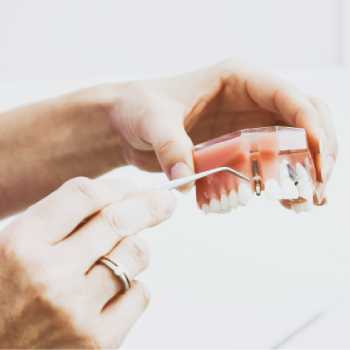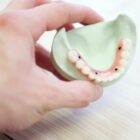The Truth About Their Lifespan
Dental implants are one of the most durable and long-lasting tooth replacement options available. But how long do they actually last? While many believe that implants are permanent, their lifespan depends on several factors, including oral hygiene, lifestyle habits, and overall health.
Here’s what you need to know about the longevity of dental implants and how to maximize their lifespan.
How Long Do Dental Implants Last?
A well-placed and properly maintained dental implant can last 25 years or more, and in many cases, even a lifetime. However, it’s important to differentiate between the different parts of an implant:
- The Implant Post (Titanium Screw): This is the part surgically placed into the jawbone. It is designed to last a lifetime with proper care.
- The Abutment: This small connector piece attaches the implant post to the crown. It may need replacement after several years.
- The Crown (Artificial Tooth): Typically lasts 10-15 years before it may need replacement due to normal wear and tear.
Factors That Affect Implant Longevity
1. Oral Hygiene
Proper brushing, flossing, and professional cleanings are crucial to prevent gum disease, which can weaken the bone supporting the implant.
2. Gum and Bone Health
Healthy gums and a strong jawbone are essential for implant success. Conditions like periodontitis or bone loss can shorten an implant’s lifespan.
3. Lifestyle Habits
- Smoking increases the risk of implant failure by restricting blood flow to the gums.
- Teeth grinding (bruxism) can put excessive pressure on implants, leading to damage over time.
- Diet plays a roleshard and sticky foods can wear down the implant crown faster.
4. Placement Location
Implants in the back of the mouth (molars) endure more pressure from chewing, potentially reducing their lifespan compared to implants in the front.
5. Overall Health
Medical conditions such as diabetes, osteoporosis, or autoimmune diseases can impact healing and long-term implant stability.
How to Maximize the Lifespan of Your Dental Implants
- Brush and floss daily to keep gums and surrounding teeth healthy.
- Use a soft-bristled toothbrush and non-abrasive toothpaste to avoid scratching the implant.
- Visit your dentist every six months for professional cleanings and implant checkups.
- Avoid chewing on hard objects like ice, pens, or hard candy.
- If you grind your teeth, wear a nightguard to protect your implants.
- Quit smoking and limit alcohol consumption to promote healing and longevity.
- Maintain a healthy diet rich in calcium and vitamin D to support bone health.
Final Verdict: Are Dental Implants Permanent?
While the implant post itself is designed to last a lifetime, the crown may need replacement every 10-15 years due to normal wear. However, with proper care and healthy lifestyle choices, your implants can function effectively for decades.
If you are considering dental implants or want to ensure their longevity, regular dental visits and good oral hygiene are key. Consult your dentist for personalized advice on maintaining your implants for life.


